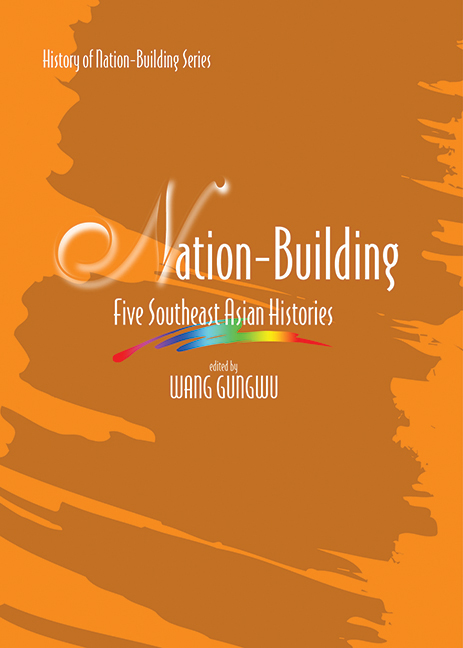Book contents
- Frontmatter
- Contents
- Preface
- The Contributors
- Chapter One Contemporary and National History: A Double Challenge
- Chapter Two Nation and State in Histories of Nation-Building, with Special Reference to Thailand
- Chapter Three Rethinking History and “Nation-Building” in the Philippines
- Chapter Four Writing the History of Independent Indonesia
- Chapter Five Ethnicity in the Making of Malaysia
- Chapter Six Historians Writing Nations: Malaysian Contests
- Chapter Seven Writing Malaysia's Contemporary History
- Chapter Eight Forging Malaysia and Singapore: Colonialism, Decolonization and Nation-Building
- Chapter Nine Nation-Building and the Singapore Story: Some Issues in the Study of Contemporary
- Chapter Ten Nation and Heritage
- Index
Chapter Five - Ethnicity in the Making of Malaysia
Published online by Cambridge University Press: 21 October 2015
- Frontmatter
- Contents
- Preface
- The Contributors
- Chapter One Contemporary and National History: A Double Challenge
- Chapter Two Nation and State in Histories of Nation-Building, with Special Reference to Thailand
- Chapter Three Rethinking History and “Nation-Building” in the Philippines
- Chapter Four Writing the History of Independent Indonesia
- Chapter Five Ethnicity in the Making of Malaysia
- Chapter Six Historians Writing Nations: Malaysian Contests
- Chapter Seven Writing Malaysia's Contemporary History
- Chapter Eight Forging Malaysia and Singapore: Colonialism, Decolonization and Nation-Building
- Chapter Nine Nation-Building and the Singapore Story: Some Issues in the Study of Contemporary
- Chapter Ten Nation and Heritage
- Index
Summary
The writing of my book, Malaysia: The Making of a Nation, (published by ISEAS, Singapore, 2002) was not an easy task because it is primarily a book of contemporary history. Historians are usually more comfortable writing about periods further back in time than the ones they lived in. I lived through some of the major events in the 1945–2001 period covered by the book. It is possible that my present-day views and recollections of the events and personalities of that period may have influenced this study. This paper is to explain why I wrote the book the way I did.
First, I take comfort from what the Italian thinker, Benedetto Croce, has to say about contemporary history. “The practical requirements which underlie every historical judgement give to all history the character of ‘contemporary history’,” wrote Croce, “because, however remote in time events there recounted may seem to be, the history in reality refers to present needs and present situations wherein those events vibrate.” Croce was arguing that historians were guided in their judgment by present-day concerns as to what documents and events were important in the past, and what were unimportant.
All history was thus written, consciously or unconsciously, from the perspective of the present. Ideas and theories in the historian's own time are what allow a reading of a document in a such a way that may be contrary to the purposes of the people who wrote it. The historian, who believes that historians should reject present-day concerns when he researches the past, and merely engage in a dialogue with the past, is merely deceiving himself. He can no more escape from the past than from the present. All history thus has a present-day purpose and inspiration.
Writing about nation-building is very much like writing a biography. In the case of the latter, an author has to decide what are the key factors that shaped or made that person's personality and character.
- Type
- Chapter
- Information
- Nation BuildingFive Southeast Asian Histories, pp. 91 - 116Publisher: ISEAS–Yusof Ishak InstitutePrint publication year: 2005



